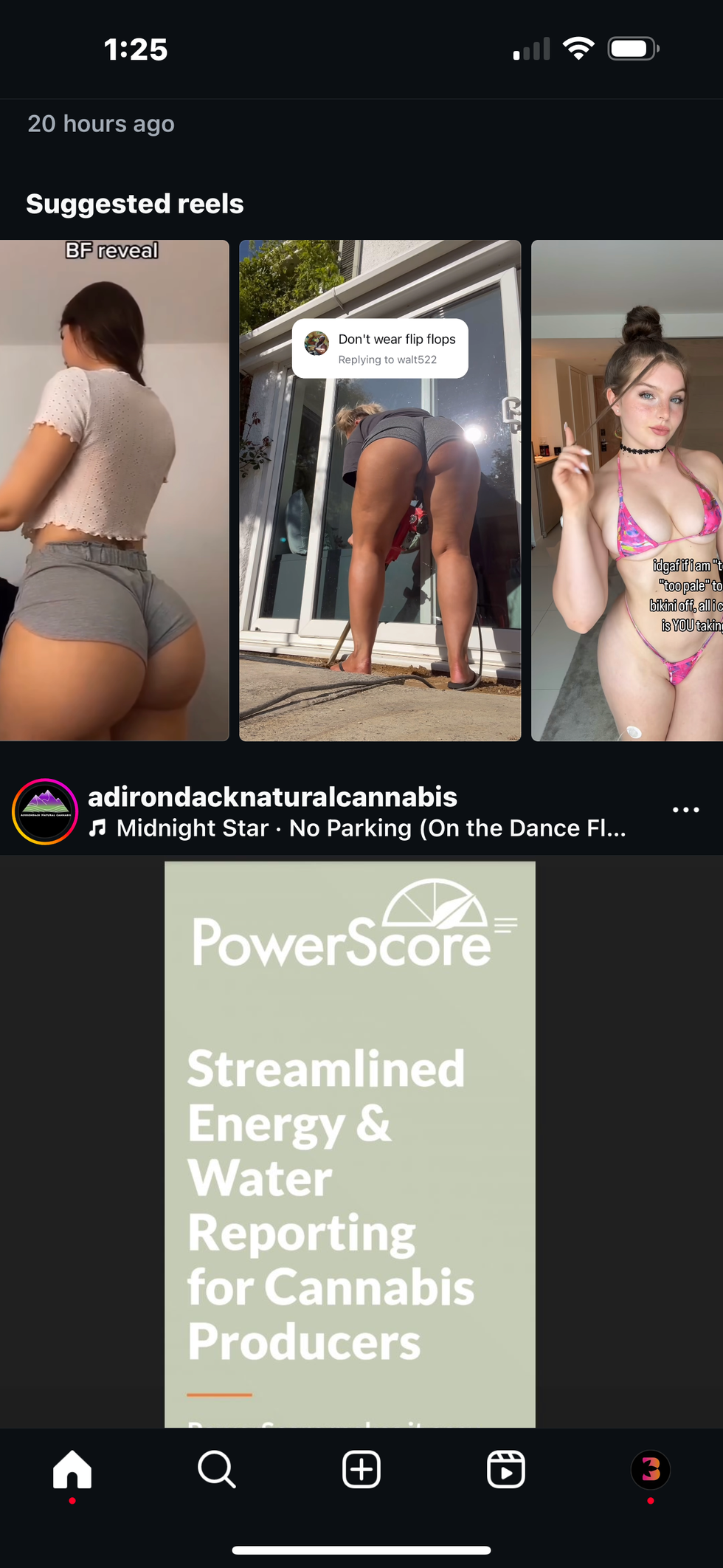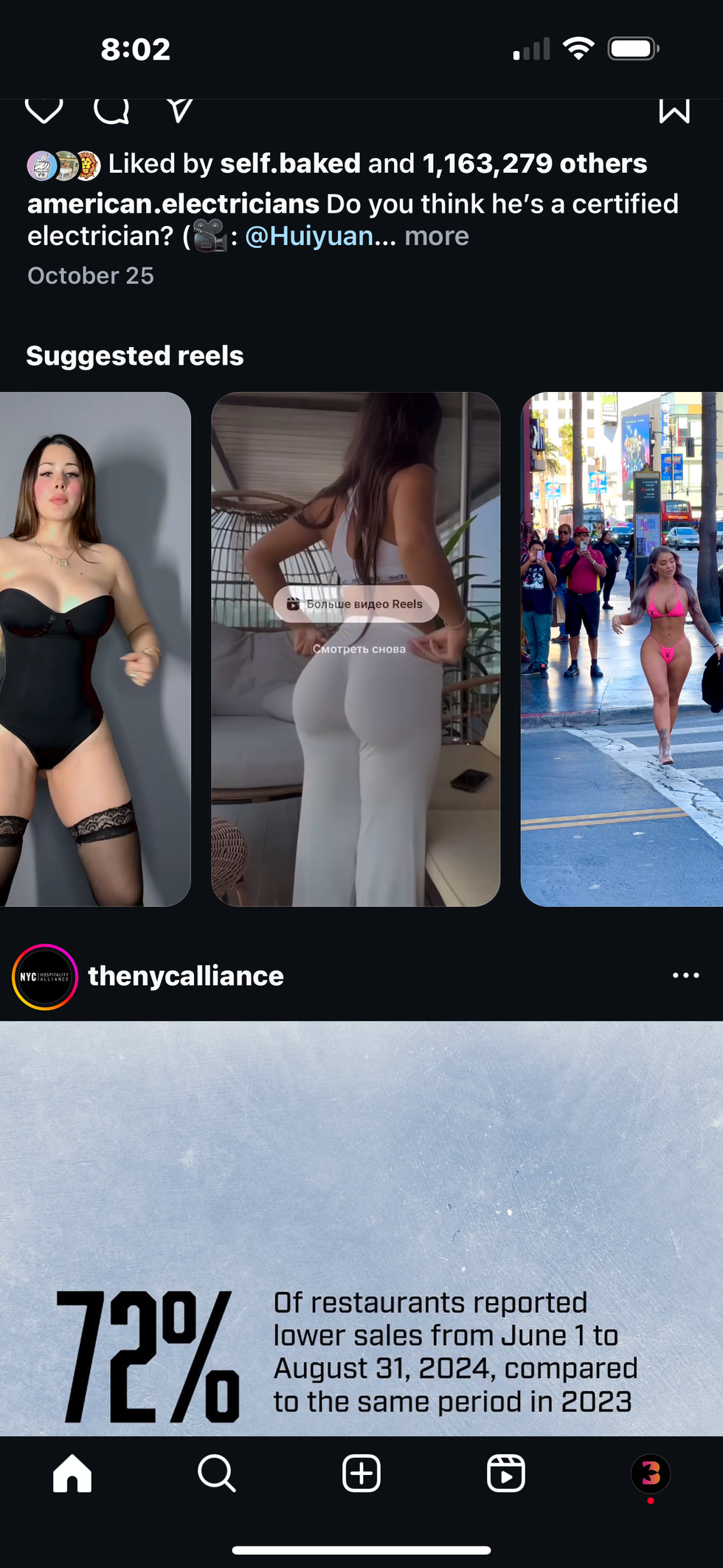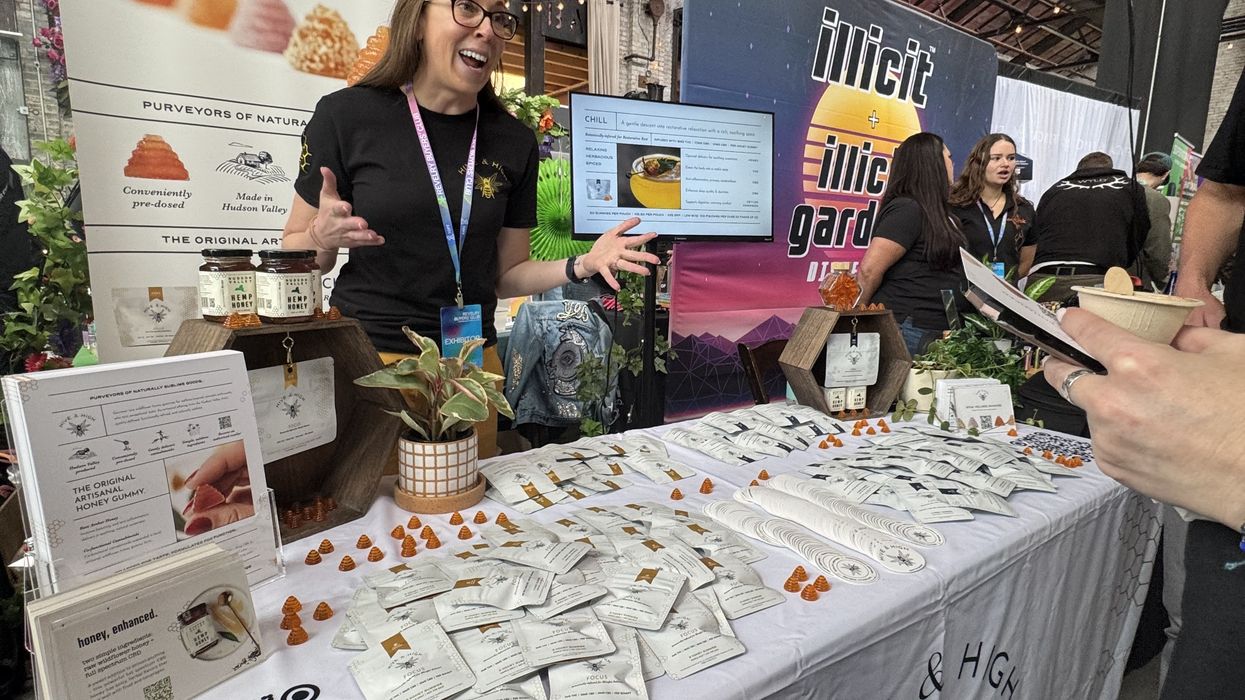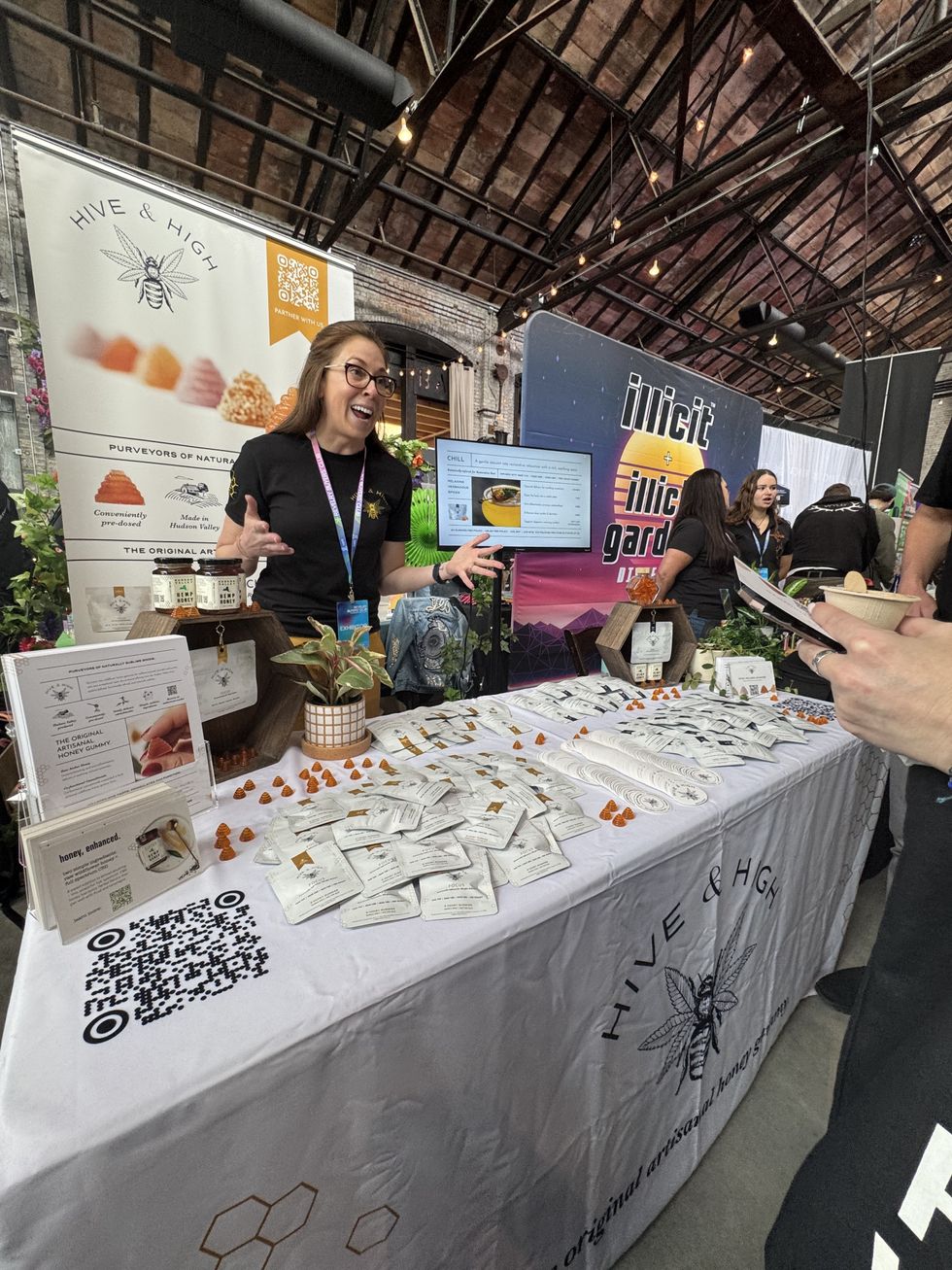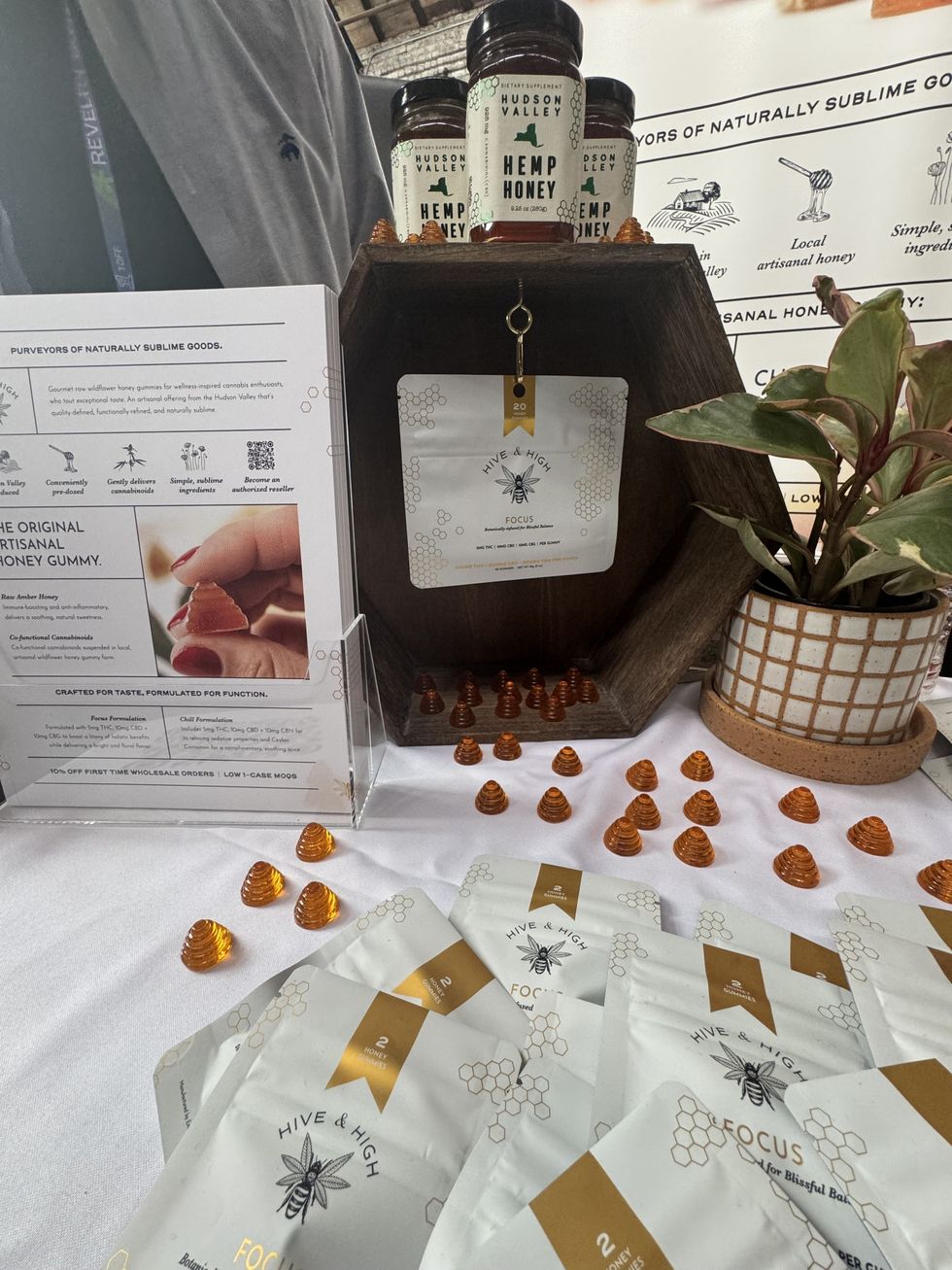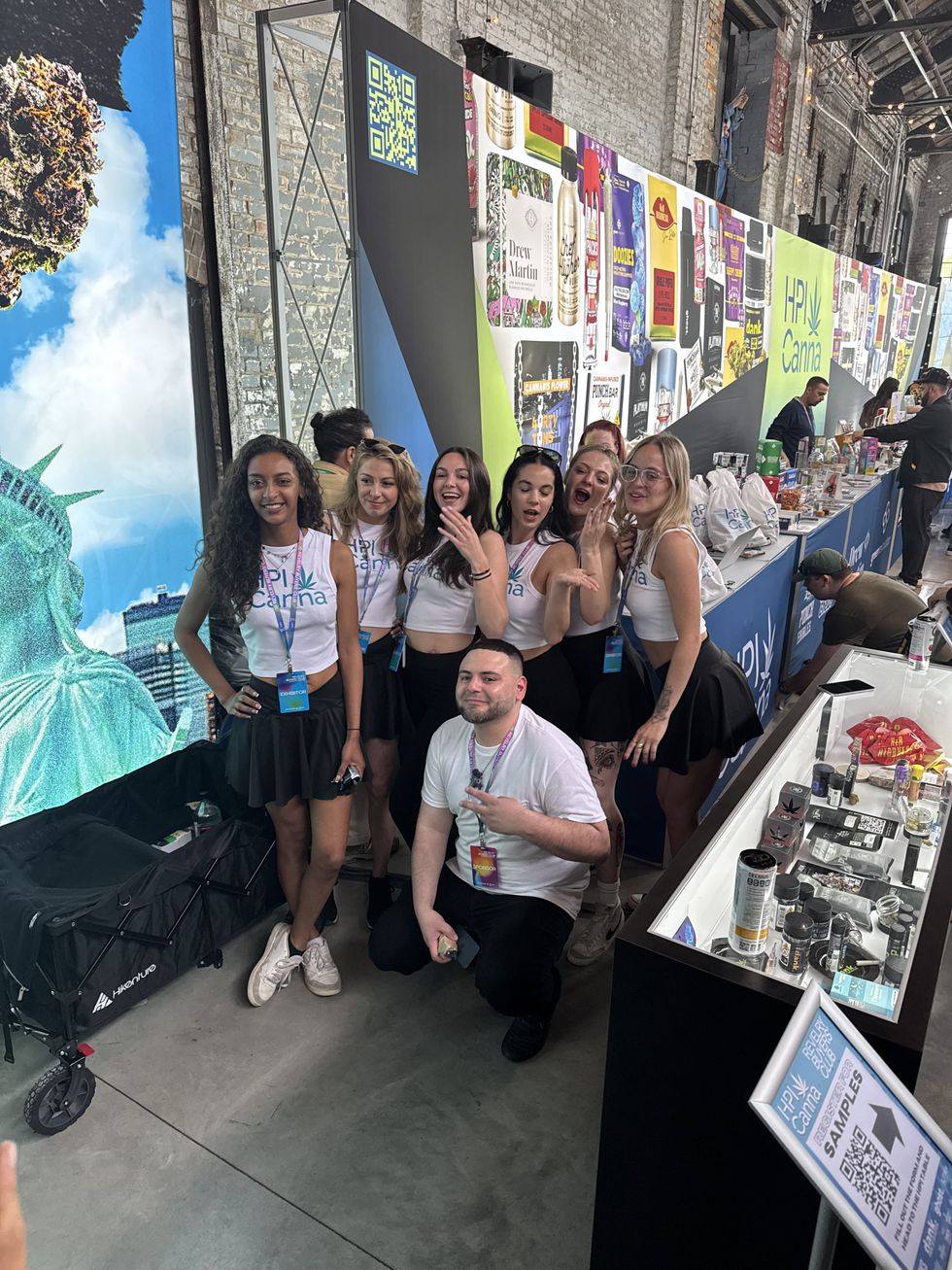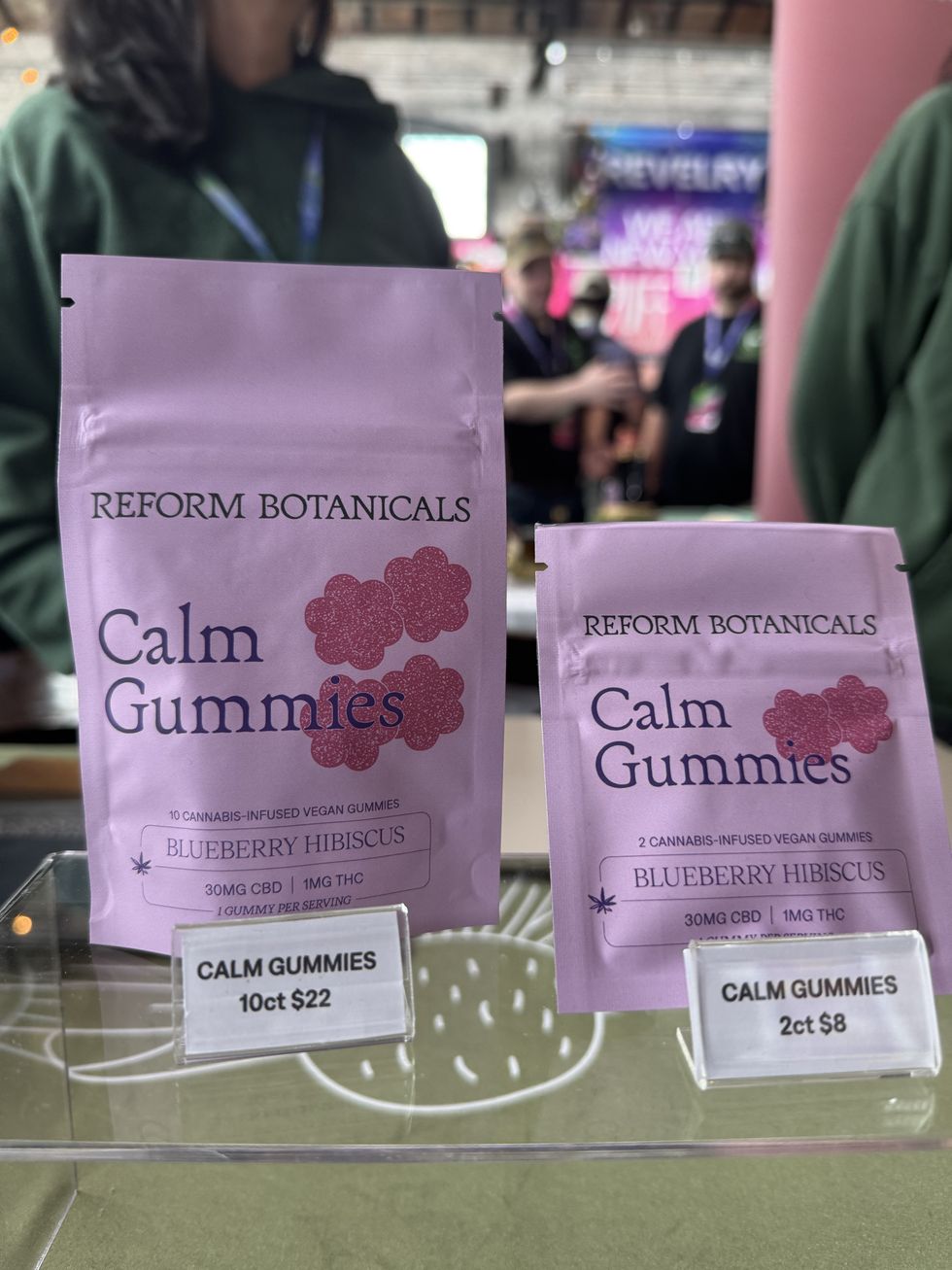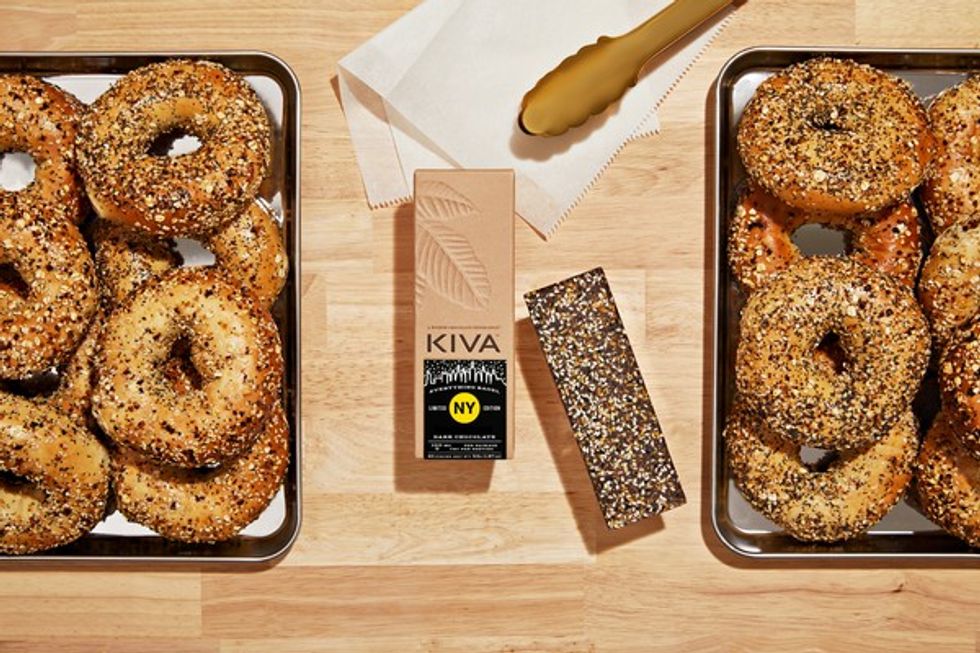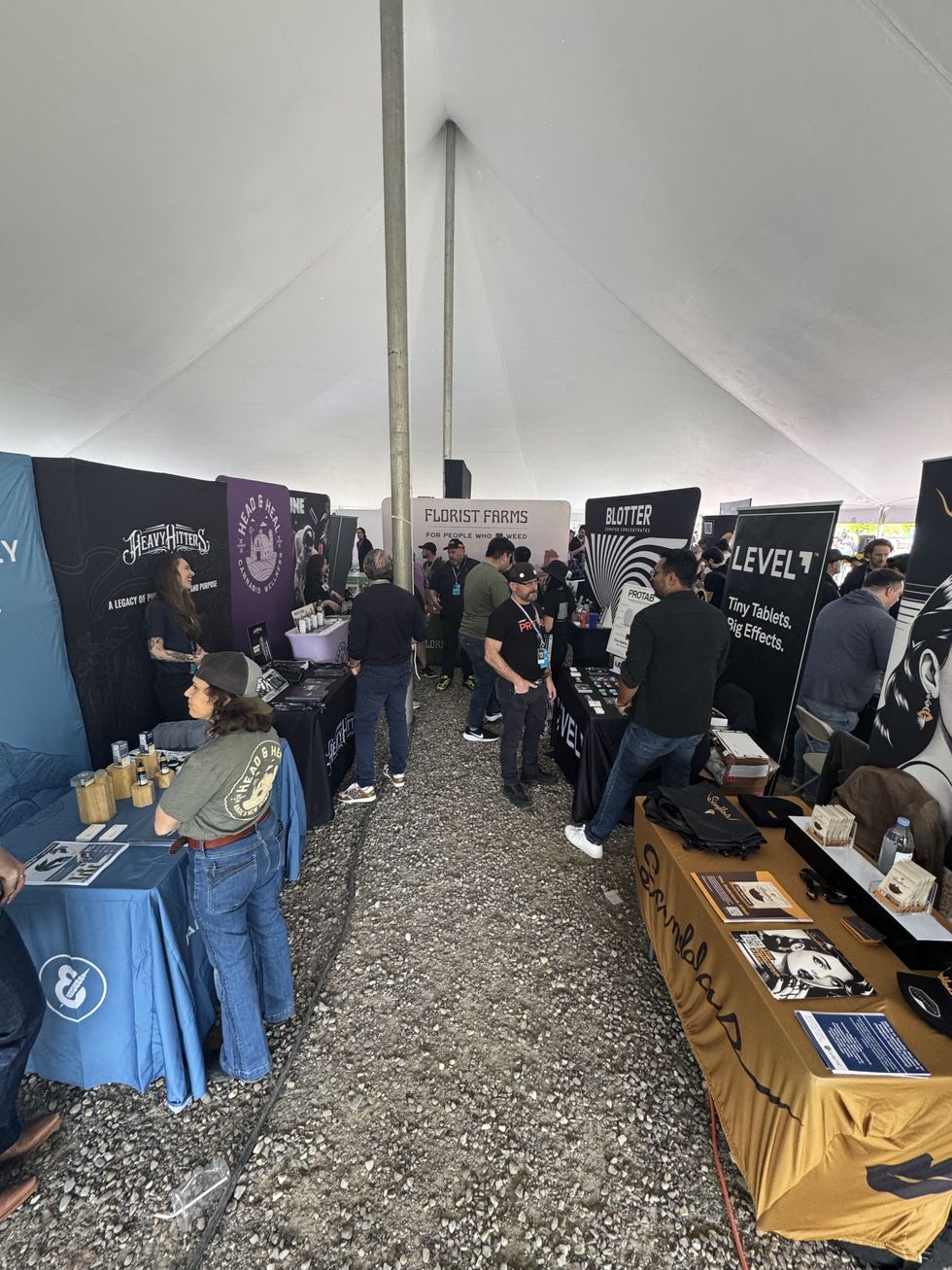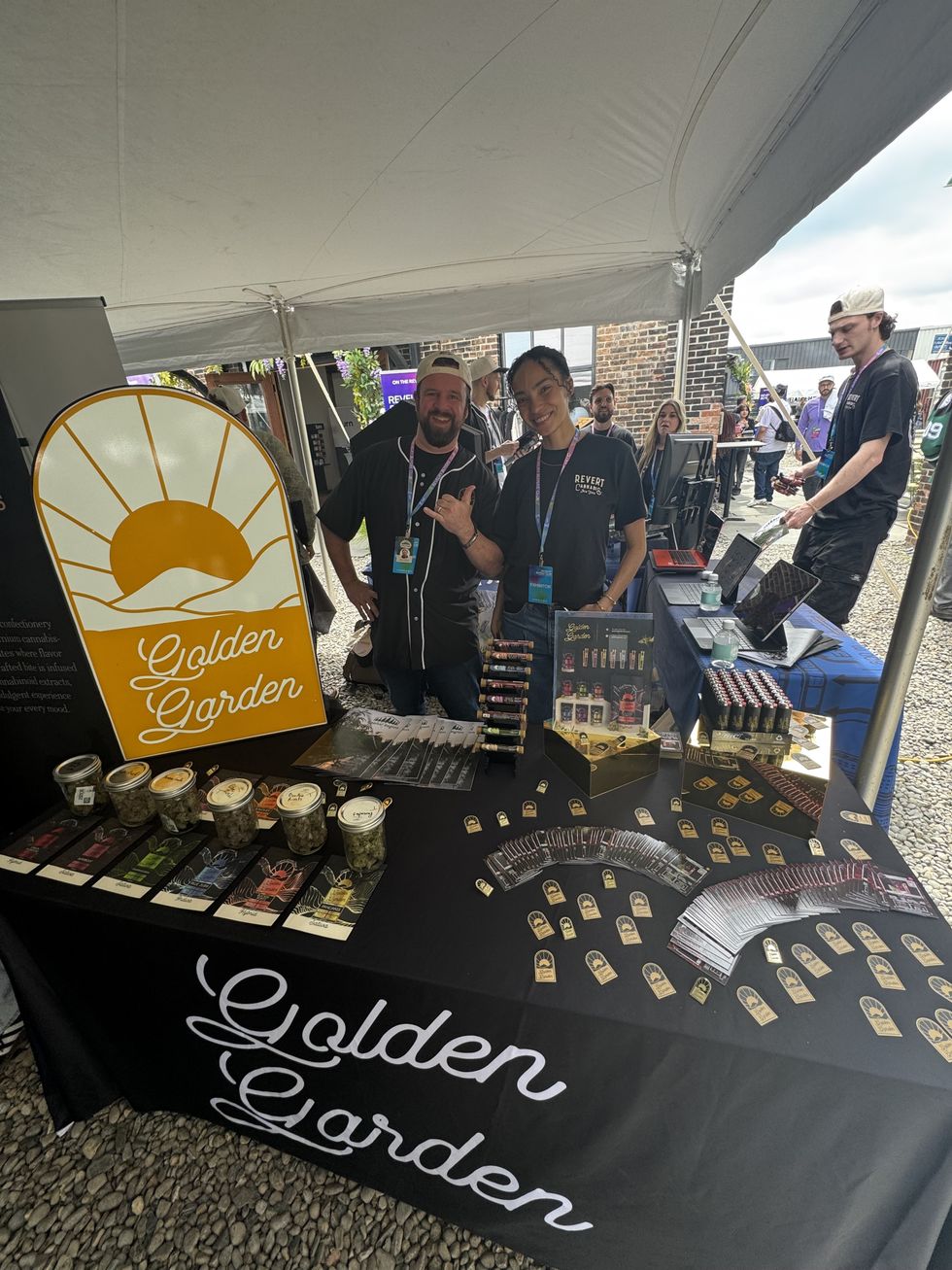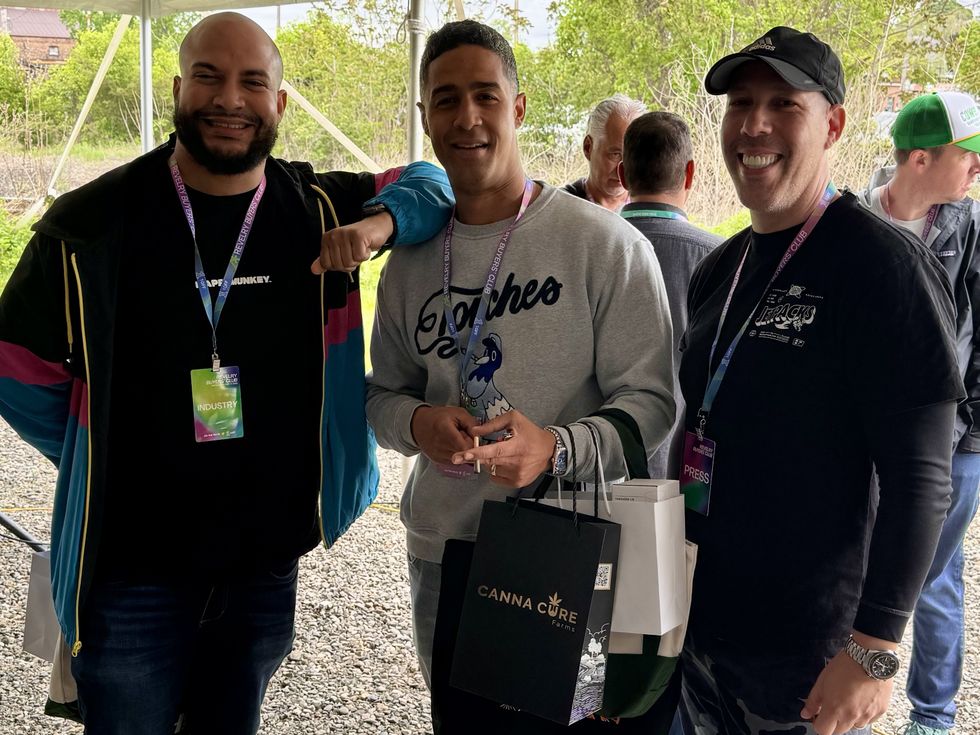Three proposed license types include “Supplemental” for existing Marijuana Establishments, “Hospitality,” and “Event Organizer”
Up until this week, chatter about cannabis social consumption in Massachusetts had mostly been regressive. Instead of moving forward, news from the Cannabis Control Commission often indicated that the Bay State was no closer to having weed lounges than in 2018, when state lawmakers passed a bill with a provision to allow municipalities to permit such venues in accordance with particular rules.
We’ve covered that backstory extensively. But in light of a presentation on Social Consumption Establishments [SCEs] given today by CCC Commissioner Bruce Stebbins with supporting staff members, it’s finally time to look forward to social consumption, defined in Massachusetts as “A Marijuana Establishment licensed by the Commission where Consumers can purchase and safely consume Marijuana and Marijuana Products.”*
“Social consumption is still in its infancy,” Stebbins said at the beginning of his presentation. “Even mature jurisdictions like California and Colorado, who we have had the opportunity to talk to and collaborate with, have continued to make changes to offer new opportunities with respect to their own legalized and licensed social consumption.”
The outline of social consumption in Massachusetts
Stebbins explained that Thursday’s presentation was the product of extensive research and outreach, all done with acknowledgement that “social consumption is already happening.”
While the presented “framework and accompanying regulations represent our exhaustive work,” the commissioner said, “it does not have every answer to every question.”
The proposal, as outlined below and detailed in forthcoming draft regulations, Stebbins said, “is meant to invite conversation.” The commission wants not only the industry, but also the “broader public to weigh in.” To that end, the presentation emphasized the extent to which theirs was an interdepartmental effort involving offices spanning the CCC’s communications team to enforcement counsel.
Commissioners and staff members also stressed the many stakeholders who their Social Consumption Working Group communicated with, ranging from officials in potential future host communities, to current Marijuana Establishment owners, to event facilitators, law enforcement, public health officials, tourism councils, and insurance brokers.
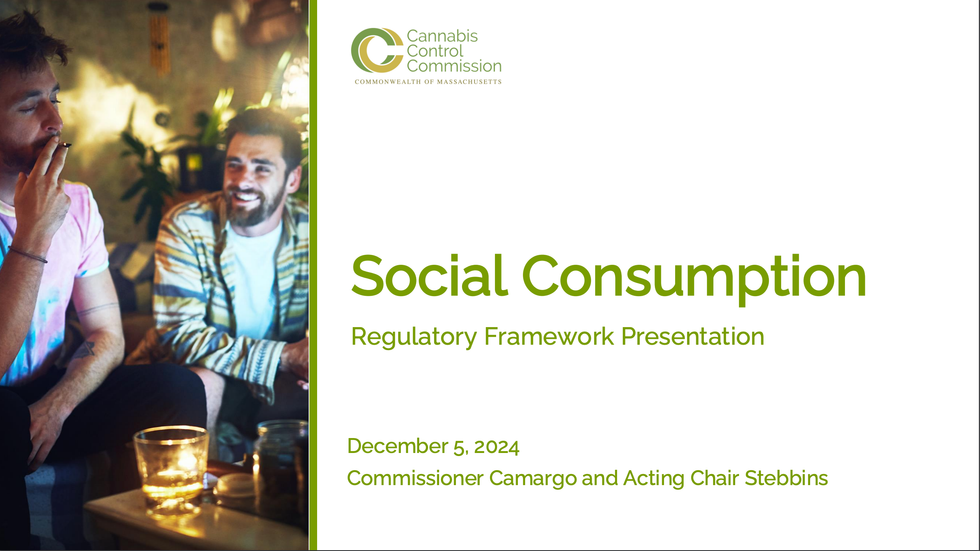
Proposed social consumption license classes
Commissioners are proposing three distinct on-site social consumption license classes: Supplemental, Hospitality, and Event Organizer. They break down as follows:
Supplemental: For: Existing, qualifying [Marijuana Establishments] MEs, including Cultivators, Product Manufacturers, Retailers, Microbusinesses, Craft Marijuana Cooperatives or Delivery Operators
- On-site Consumption allowed within or attached to an existing ME
- May host social consumption activities within existing facility or adjoining space
- Consumers may consume product purchased on site
- Examples: ME with an On-site Consumption Space attached – Lounge, Café, Tasting Room, etc.
Hospitality: For: Qualifying Consumption Licensee in a new or existing non-cannabis commercial business space
- On-site Consumption allowed within a new cannabis business, or attached to an existing non-cannabis business
- Mixed-use space allowed as a partnership with a non-cannabis business
- Examples: Lounge, Café, Entertainment/Recreational Space, Yoga Studio, Theater, Lodging Space
Event Organizer: For: Qualifying Entities may organize and host Temporary Consumption Events
- Only ME Licensees can participate in the Event
- Temporary On-site Consumption Permit allowed at single or multiple locations
- May store/purchase cannabis at Principal Place of Business (PPB)
- HCA required at PPB, local permitting and approval needed for Temporary Consumption Events
- Events no more than five days in length nor more than 24 events per year
Policy considerations for social consumption licenses
The CCC outlined the following public health and safety elements that members are addressing in forthcoming regulations:
- Employee safety (e.g., ventilation, signage)
- No intersection of alcohol or tobacco and tobacco products within licensed spaces/premises
- Provide for employee safety with PPE and right to be shifted to other job responsibilities at employee’s request
- Special Responsible Vendor Training (RVT) requirements for all registered agents working at a Social Consumption Establishment with focus on Drug and Alcohol Impairment Recognition
- Standard Operating Procedures for “cool down strategies” to help customers with adverse reactions
- 30-minute cut-off before posted closing hour of licensee
- Transportation strategy still required for all licensees to assist impaired consumers
- Product menu information to include projected times for onset to be provided by licensee
- ID checks to confirm attendees are ages 21+ required prior to entry
- No cannabis products to be brought into a Social Consumption Establishment; personal product to be disposed, stored or customer must leave premise
- Dosage Increase from Original Social Consumption Regulations
Regarding an exclusivity period for SCE Licenses for [Social Equity Businesses] SEBs, [Social Equity Program participants] SEPs, [Economic Empowerment applicants] EEAs, Microbusinesses, and Craft Marijuana Cooperatives, the CCC is proposing an extension to “60 months (5 years) after first Hospitality On-site Social Consumption Licensee Commences Operations.” “Current regulations allow for [a] three-year exclusivity period.”
Meaka Brown, one of the organizers behind Boston Cannabis Week, made a brief appearance to shed light on opportunities that could be available for people in these license classes. Also a member of the Cannabis Social Equity Fund Advisory Board, she said information is forthcoming about the intersection of social equity and social consumption.
Another focus and concern is air quality, with the CCC looking to require an “air handling system,” depending “on planned activities,” as well “regulatory allowance for [the CCC] Executive Director to give approval and authorization of new consumption products, methods, and technology.” Those with medical needs also came up under policy considerations, with the presentation prioritizing “Access for Qualified Patients.”
Food and social consumption in Massachusetts
Foodies needn’t worry—they’re being considered as well. Here’s what the CCC has on the menu for social consumption:
- Food services to be required at all licensed [SCE] Marijuana Establishments
- Food and any infused cannabis products must be served to Consumer separately
- Food service training to be required at establishments where food is prepared on site
- Options also include delivery services or partnerships with existing and possibly adjacent restaurants/food establishment
Next steps for social consumption in Massachusetts
We’re not across the finish line just yet. As Commissioner Stebbins conceded, “We know this regulatory process is never quick, never speedy.”
On Dec. 17, the agency will release red-lined regulations for social consumption, at which point an “informal public comment period” will begin. When that comment period ends, an estimated three-week period will commence for the Social Consumption Working Group to edit the regs. Then a week for “Commissioners to Redline Regulations in Public Meeting,” then a “Formal Notice of Public Hearing,” then two weeks for the “Commission to File Redlined Regulations with Secretary of State,” followed by a three-week “Formal Public Comment Period,” in which Cannabis Advisory Board Members and key stakeholders will chime in.
After that, there will be a public hearing, then more edits, and eventually a public meeting to nail down the final language. Which, by CCC estimates, puts the publishing date in “mid-2025.”
CCC Director of Government Affairs and Policy Matt Giancola said, “All of this is to say that once regulations are available, it doesn’t mean Social Consumption Establishments will open the very next day.”
Noted, but for the first time in a long time, it seems that day may actually, eventually arrive.
*Commissioner Nurys Camargo also worked hard on the social consumption proposal, but was unable to co-present this week due to a strained voice. She thanked their collaborators at the finish of the presentation.
About the Author:
CHRIS FARAONE
Chris is the editor and co-founder of Talking Joints Memo, a co-founder of the Boston Institute for Nonprofit Journalism, and a longtime reporter for outlets including the Boston Phoenix and DigBoston. He started his career as a music journalist and has been honored to collaborate with the likes of cannabis icons like Cypress Hill and Wu-Tang on book projects. He also plays pickleball and would love more people to play with who also smoke weed.







 Can Drug Dogs Smell Edibles? - The Bluntness
Photo by
Can Drug Dogs Smell Edibles? - The Bluntness
Photo by 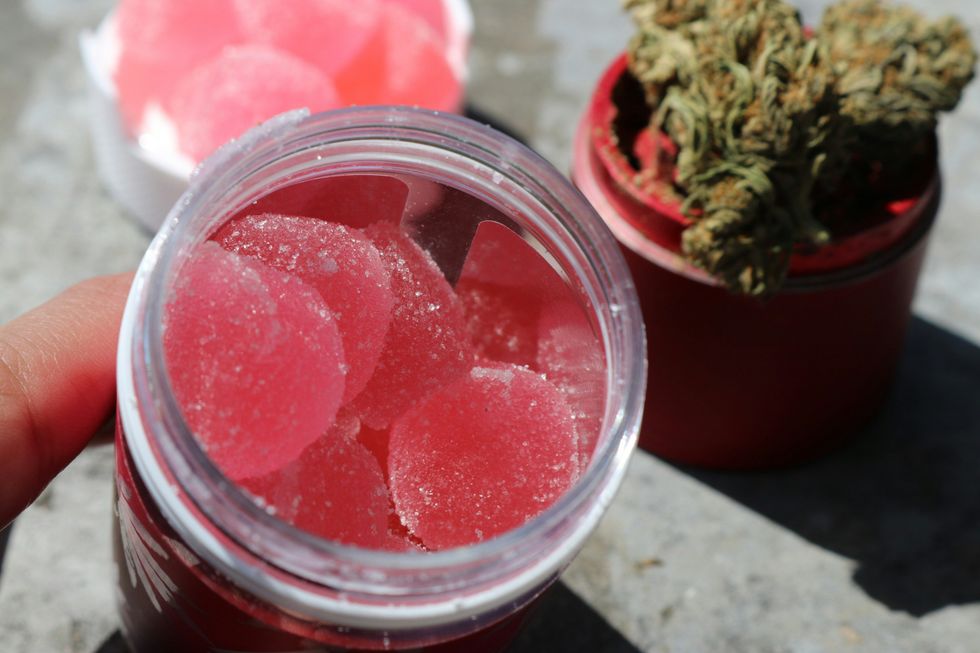 Can Drug Dogs Smell Edibles? - The Bluntness
Photo by
Can Drug Dogs Smell Edibles? - The Bluntness
Photo by 






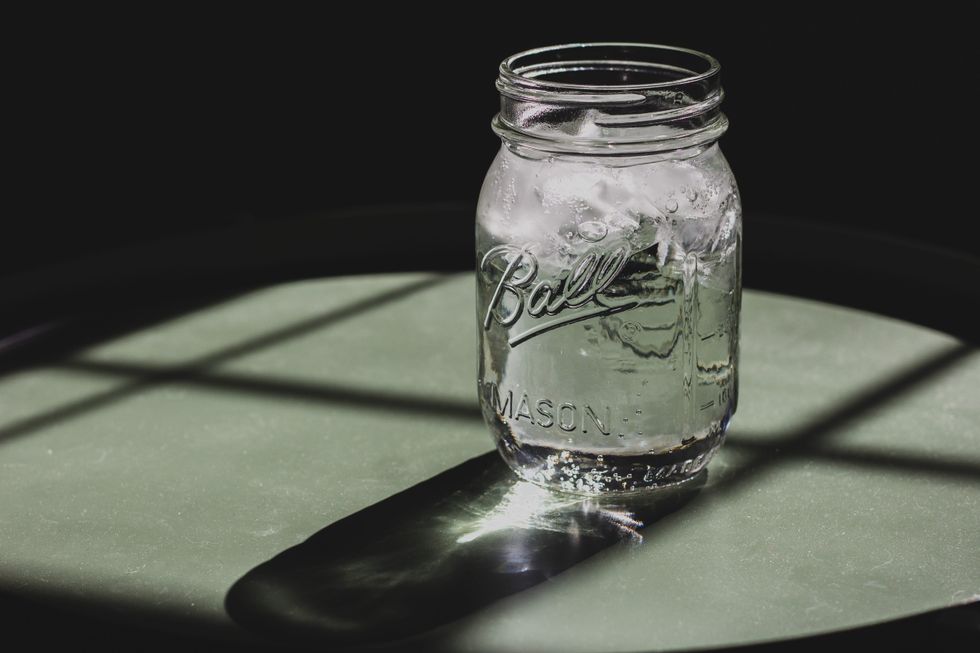 How to Store Magic Mushrooms
How to Store Magic Mushrooms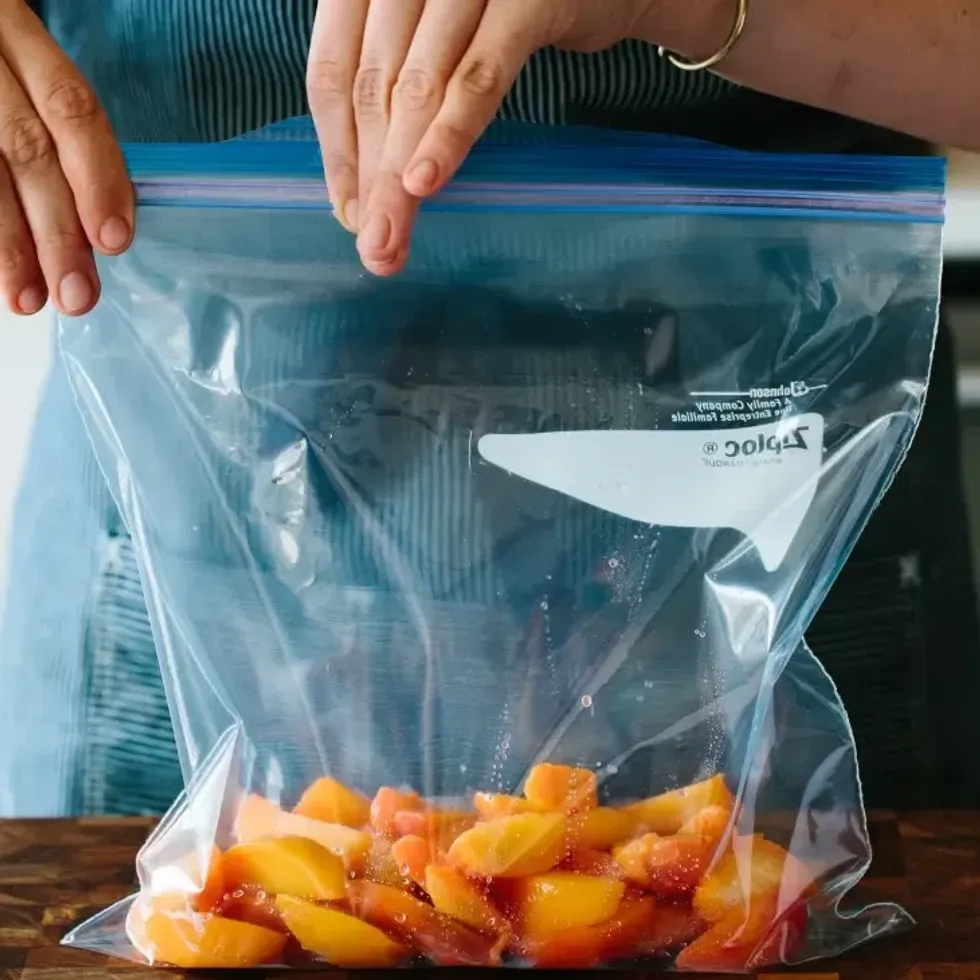 How to Store Magic Mushrooms
How to Store Magic Mushrooms How to Store Magic Mushrooms
How to Store Magic Mushrooms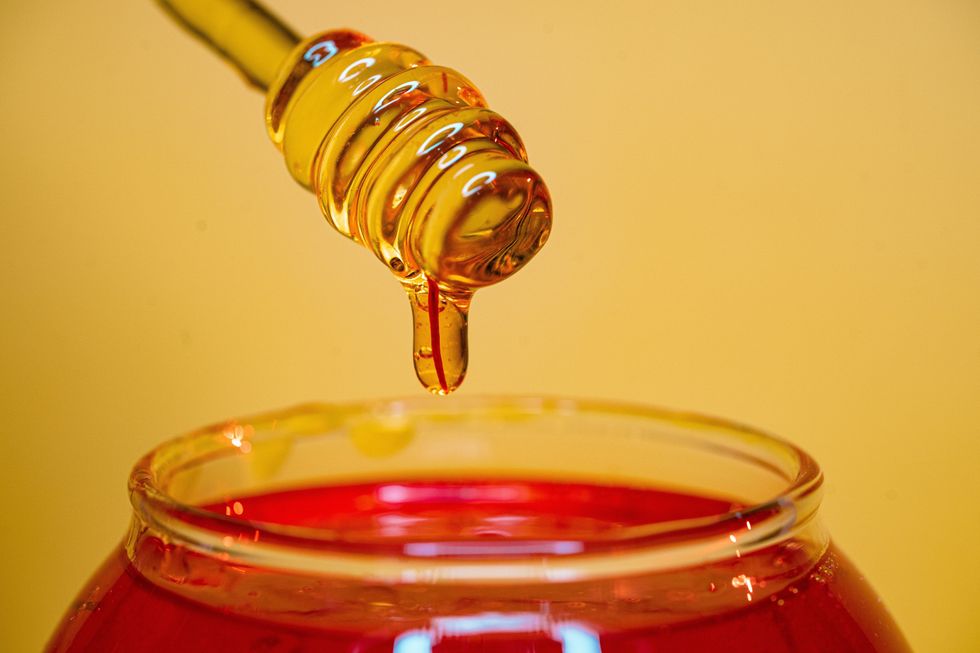 How to Store Magic Mushrooms
How to Store Magic Mushrooms How to Store Magic Mushrooms
How to Store Magic Mushrooms
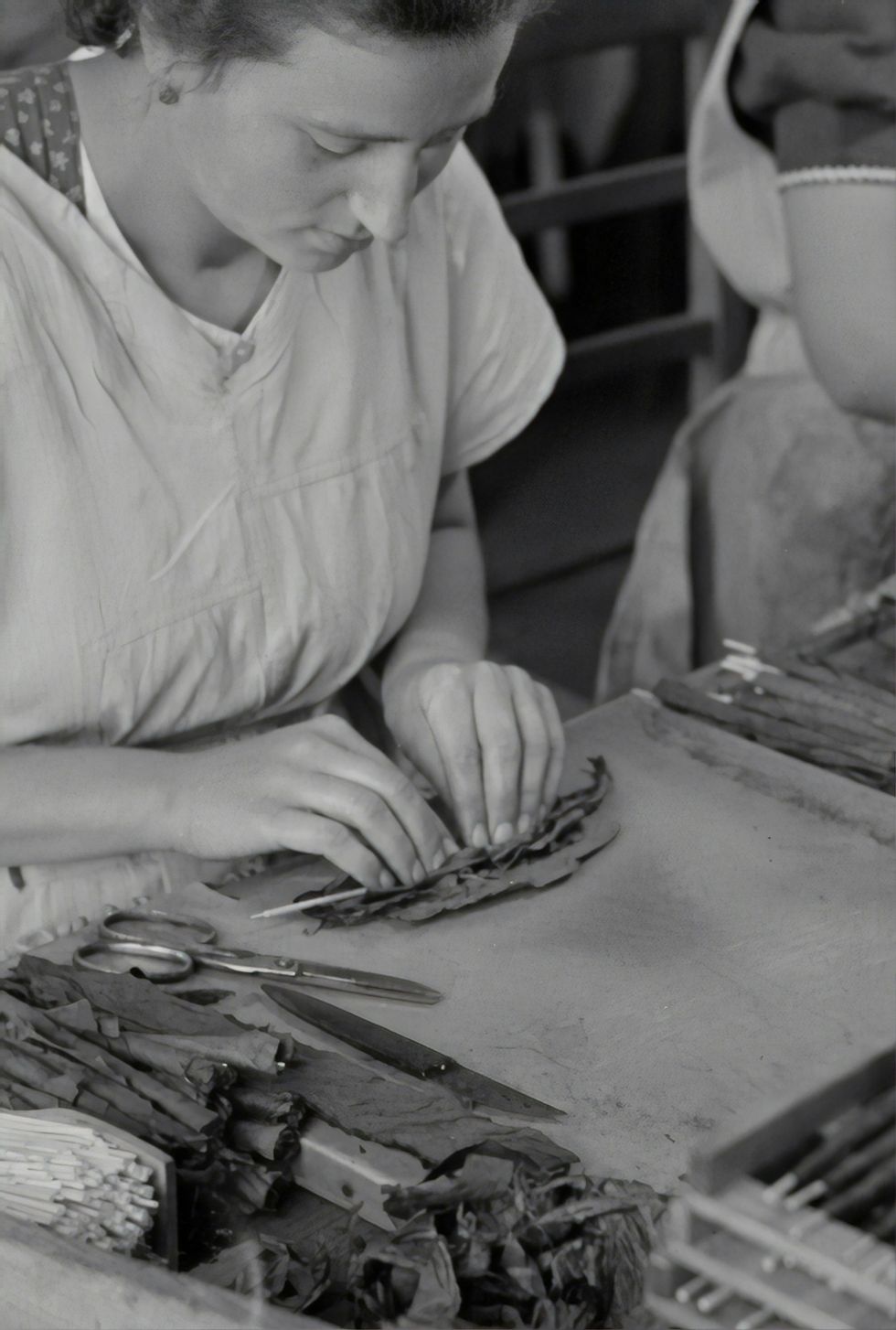 How to Make a Cannagar Without a Mold: A Comprehensive Guide - The Bluntness
Photo by
How to Make a Cannagar Without a Mold: A Comprehensive Guide - The Bluntness
Photo by 
 Example of sexually suggestive content that's rampant on our Instagram feeds and under Explore sections.
Example of sexually suggestive content that's rampant on our Instagram feeds and under Explore sections.  Examples of sexually suggestive content that's rampant on our Instagram feeds and under Explore sections.
Examples of sexually suggestive content that's rampant on our Instagram feeds and under Explore sections. 




